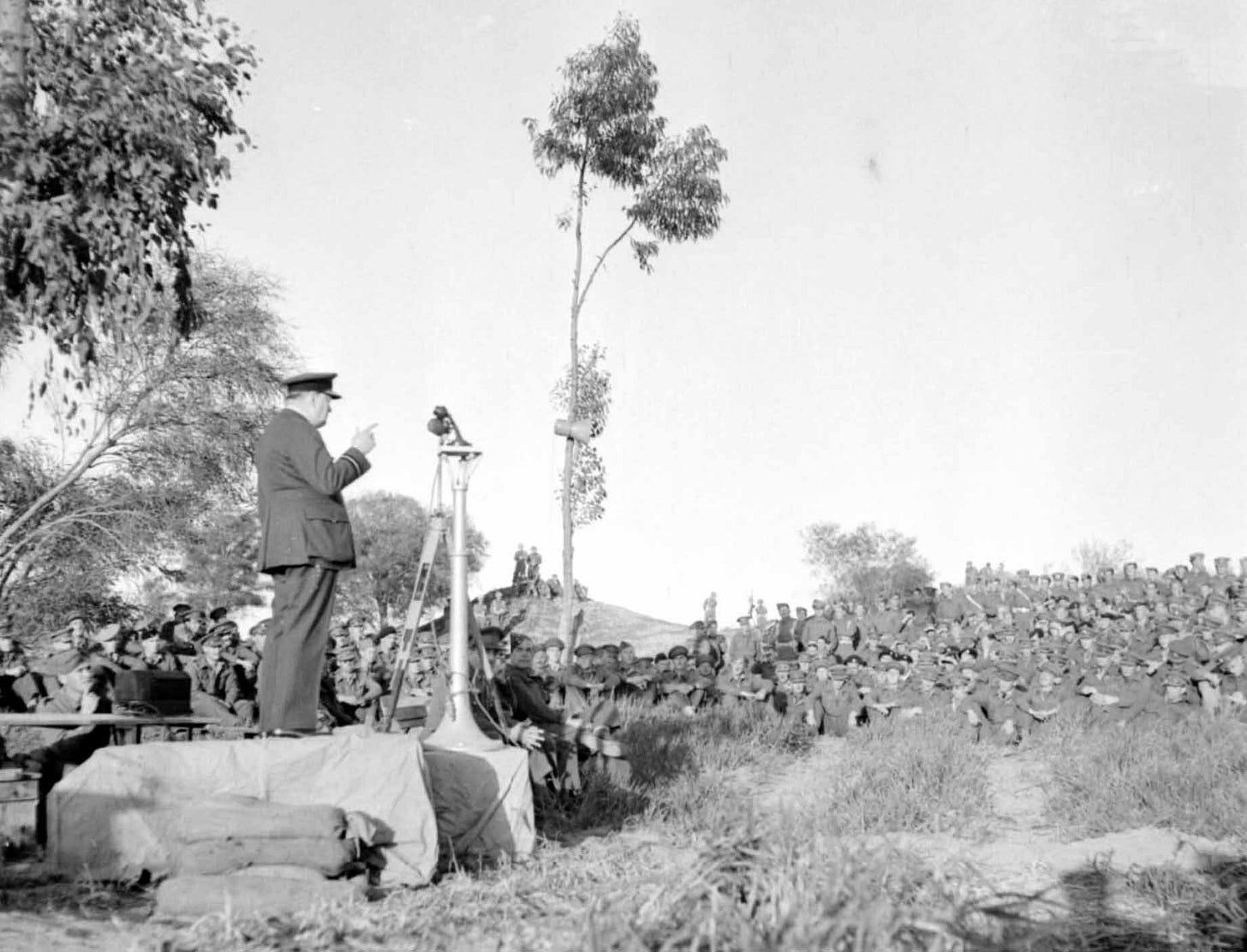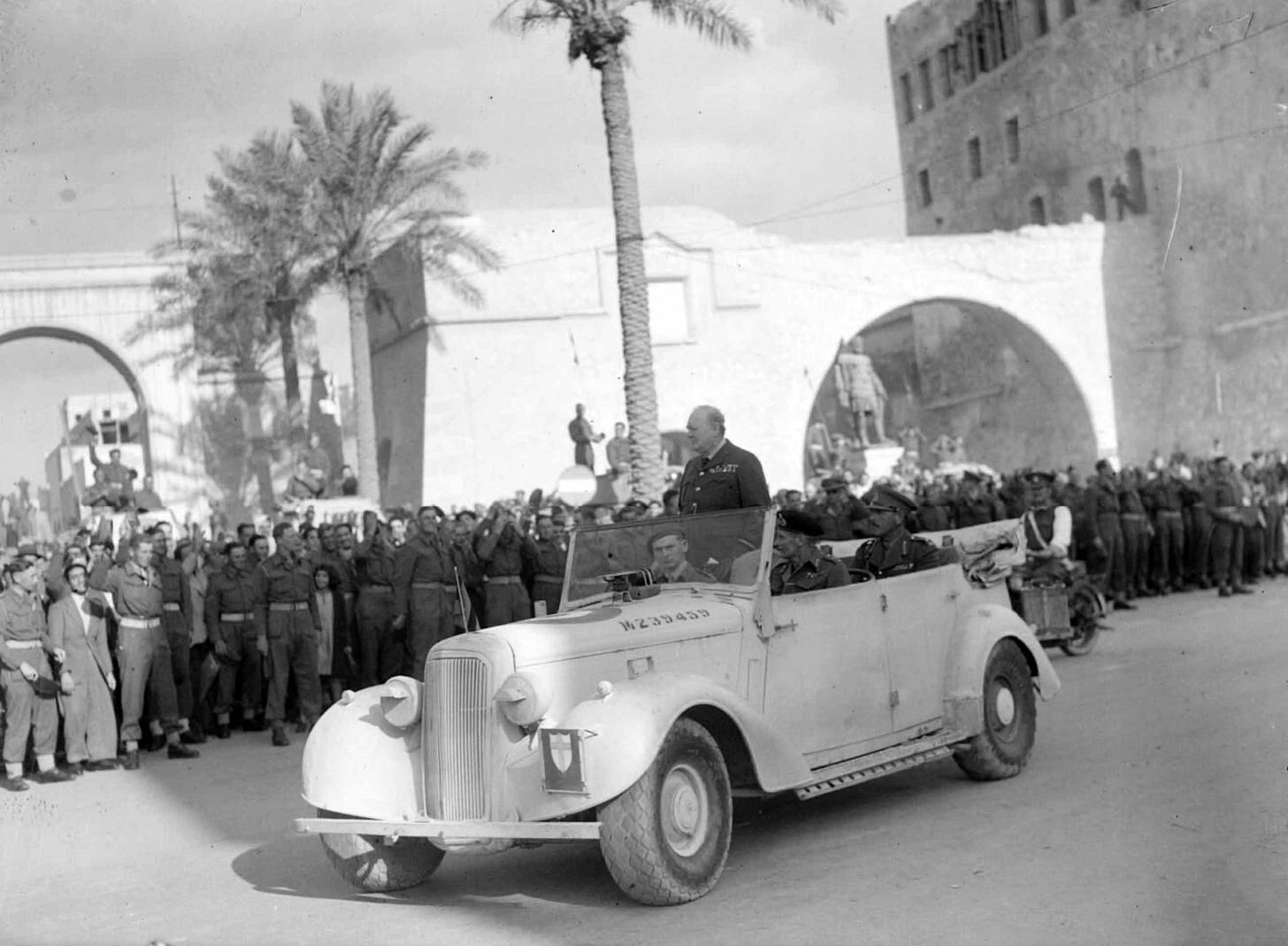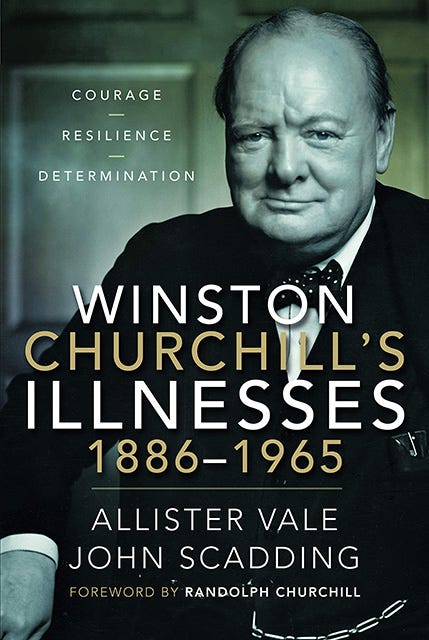Churchill struck by the 'old man's friend'
12th February 1943: An episode covered by an excerpt from a fascinating new study 'Winston Churchill's Illnesses 1886-1965'


In the course of a long life, Churchill was able to ‘bounce back’ from some remarkably serious episodes of ill health. Of course, we now know how often he was able to recover - but there was never any certainty of that at the time.
In February 1943, at the height of the war, the 68-year-old Churchill had a prodigious workload and a demanding travel schedule. At this time, even with the best health care, a fifth of men his age would succumb to the ‘old man’s friend’.
As his personal secretary Elizabeth Layton was to recall:
For some days we wondered whether or not he would live. We were all utterly miserable; he was in his room at the Annexe, and most of the time we hung forlornly about the flat feeling quite lost. On the rare occasions when he dictated, and it could only be on a matter of major importance, his voice was so weak and his manner so gentle that we longed for the old stamp and bark, the quiet word of scorn, the snort of impatience and the final twinkle of forgiveness. The flat was stiff with specialists, and two hospital nurses took up regular abode in the study.
The following excerpt covers just a part of this episode:
Pneumonia in February 1943 in London
“Am I as ill as that?” “You certainly are.”
Churchill returned from Algiers to Britain on Sunday, 7 February 1943, a flight of 8 1/2 hours; he reached London at 1 o’clock. Later that day, Churchill presided over his first War Cabinet in four weeks.
Following his return, Churchill maintained his customary work output and gave a 2-hour speech in the House of Commons on 11 February 1943 on the war situation, specifically the Conference at Casablanca. ‘I thought I had a good tale to tell,’ Churchill wrote later.
However, when Churchill addressed the Commons, he was ‘far from well, with a heavy cold and a sore throat,’ noted Commander Thompson RN, his aide-de-camp.
Harold Nicolson MP reported that Churchill had ‘a slight cold, looks less well than he did on arrival, but is in tearing spirits’. Churchill’s daughter, Mary, also recorded that: ‘He was already suffering from a cold and a sore throat.’
Churchill admitted later that ‘I was more tired by my journeying than I had realised at the time, and I must have caught a chill. A few days later a cold and sore throat obliged me to lie up.’
12 February 1943
Mary Churchill recorded on 12 February 1943 that her father had ‘developed a temperature’. John Martin, Principal Private Secretary, wrote: ‘PM in bed with a cold.’ General Sir Alan Brooke, Chief of the Imperial General Staff, recorded: ‘Went round to the Annexe [No. 10 Annexe above the Cabinet War Rooms] at 3 pm ... PM in bed with fever ... I had intended to discuss other questions of command, but did not like to worry him when he had this fever’.’
Marshall described his entry into the Prime Minister’s bedroom filled with important men and tobacco smoke. Winston was chesty and feverish, and Marshall had difficulty in clearing the room before he diagnosed pneumonia.
13-16 February 1943
‘PM still in bed,’ Martin recorded on both 13 and 14 February. Brooke noted that Churchill was present at the Cabinet meeting at 6 pm on 15 February and had a ‘very bad sore throat and cold’.
While dining alone with his wife on 16 February, Churchill felt very unwell and found his temperature had soared. Sir Charles Wilson, Churchill’s personal physician, was summoned and recorded that: ‘during the evening of February 16 his temperature shot up, and, after examining his chest, I had to tell him that he had a patch at the base of the left lung’. ‘What do you mean by a patch? Have I got pneumonia? asked Churchill.’
Churchill himself recorded that on the evening of 16 February: ‘my temperature suddenly rose, and Lord Moran, who had been watching me, took a decided view and told me that I had inflammation of the base of a lung. His diagnosis led him to prescribe the drug called M and B [May and Baker, manufacturers of sulfonamides].’
In fact, we know from the nursing notes that M&B 760 (sulfathiazole) was prescribed (see below).
Dr (later Sir) Geoffrey Marshall, Senior Physician, Guy’s Hospital, London and Physician-in-Charge, Brompton Hospital, London, was invited by Wilson to give a second opinion.
On being asked on his return how he had got on, Marshall described his entry into the Prime Minister’s bedroom filled with important men and tobacco smoke. Winston was chesty and feverish, and Marshall had difficulty in clearing the room before he diagnosed pneumonia.
‘You will have to relinquish the conduct of affairs for a fortnight,’ Marshall pronounced. ‘How dare you,’ retorted Churchill, ‘the war is at a critical stage.’
‘You will have to relinquish the conduct of affairs for a fortnight,’ Marshall pronounced. ‘How dare you,’ retorted Churchill, ‘the war is at a critical stage.’ Marshall replied: ‘Very well, but you know what we call this illness, we call it old man’s friend because you fade away so gradually that you arrive in the next world before you know you have left this one!’ ‘Am I as ill as that?’ asked Churchill. ‘You certainly are.’ Churchill acquiesced: ‘Very well, then I will do as you say.’
This anecdote is confirmed by Churchill himself. ‘They then said I had pneumonia, to which I replied, “Well, surely you can deal with that. Don’t you believe in your new drug?”‘ Dr Marshall said he called pneumonia “the old man’s friend”.’
Churchill asked Marshall why this was the case. ‘Because it takes them off so quietly.’ Wilson recorded: ‘He [Marshall] was soon established high in the P.M.’s favour.’ Churchill recalled that on this day ‘elaborate photographs’ (X-rays) were taken and confirmed the diagnosis.
Up to this point all my work had come to me hour by hour at the Annexe, and I had maintained my usual output though feeling far from well. But now I became aware of a marked reduction in the number of papers which reached me. When I protested the doctors, supported by my wife, argued that I ought to quit my work entirely. I would not agree to this. What should I have done all day?
Churchill wrote that he reached an agreement with Marshall that he was only to have the most important and interesting papers sent to him and to read a novel.3 ‘On this basis I passed the next week in fever and discomfort, and I sometimes felt very ill.’
When Churchill finished Moll Flanders he gave it to Marshall ‘to cheer him up’.
Winston Churchill's Illnesses 1886-1965 - Courage, Resilience, Determination is a thoroughly researched new study (2020). It encompasses not just some detailed medical records and Churchill’s reflections - but a wide range of anecdotes from those who had dealings with him while he was ill or injured. Despite the many studies of Churchill over the years, the authors of this new work have managed to uncover some genuinely new material, revealing much about his character.
In many ways, this is biography at its best. By taking a very particular perspective, it sheds light not only on the man but the man seen within the context of the times he lived in. For those interested in Churchill, this is essential reading.
For example, after participating in the last British cavalry charge in history, at the Battle of Omdurman in 1898, the 23-year-old Churchill was called upon to provide a skin graft. Without any form of anaesthetic a sample of skin “about the size of a shilling” was removed from the inside of his arm - to help repair the wounds of a young officer. The doctor who demanded it remarked, 'this is what it feels like to be flayed alive’.
This excerpt from Winston Churchill's Illnesses 1886-1965 - Courage, Resilience, Determination appears by kind permission of Pen & Sword Books Ltd. Copyright remains with the authors. For the sake of clarity I have omitted the many references.


